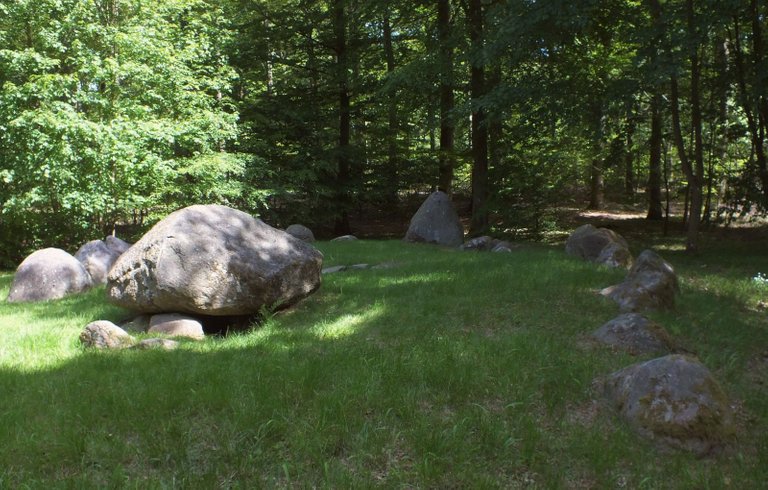Some years ago, I remember watching a very interesting TED Talk, featuring Dr. Martin Seligman, regarded by many as the father of the Positive Psychology movement.

One of the things he pointed out — which left a strong impression on me — was the fact that the mental health industry had done an excellent job in treating depression and making people "not depressed," but had simultaneously done a lousy job at teaching people how to be happy.
The key element being that "not depressed" and "happy" are two quite different things!
This is something I have long believed about general health, as well: being "not sick" is not the same thing as being "healthy."

The Challenge
Meanwhile, there's a huge self-development industry out there, selling millions of books, CDs and workshop sessions on the premise of the Pursuit of Happiness, yet our primary approach to mental health seems to be to diagnose people with Clinical Depression, toss enough pharmaceuticals at them to where they grow "comfortable numb" and forget that they are depressed... while doing pretty much nothing at all to foster the development of actual happiness.
Or, if not actual happiness, at least something that resembles "life contentment."
Which brings me to my next point: The general mis-use of the term "happy."

Danes and Happiness
I am a Danish national by birth, but I have lived in the USA since 1981. I was an adult when I arrived in this country.
I regularly read — with considerable interest — the assorted articles and studies published in a wide range of magazines, periodicals and journals, pronouncing that the Danish people are "among the happiest people in the world!"
That's nice! It's also not true, at least in the sense most people consider it. If Danes are so happy, why is the suicide rate quite high, as are the incidence of both alcoholism and depression?

Over the years, I have often talked to my Danish relatives about these particular findings, and we actually find them somewhat amusing. What we tend to agree on is that Danes are not "happy" per se, but they have a very high level of what you might call "Life Contentment."
One of my cousins — who's your basic Danish civil servant, now retired, used to work for the Ministry of Fisheries — that happiness is entirely situational and cultural.
Stated as succinctly as possible, Danes are generally happy because they tend to have access to the particular "basket of lifestyle" they consider would make them happy... but that particular basket would not (for example) make most Americans or Australians happy.

Lower Expectations?
My cousin and I generally disagree on the lower expectations, and instead think of it as different expectations. What makes many Danes happy is often far less tangible than what supposedly makes (again, for example) Americans happy.
It's difficult to measure such things as "having nice friends" and your house "being cozy" and the sensation that if something really bad happens, there's a social safety net to catch you.
But what does this all have to do with the title of this post?

Well, one of the things that definitely does not result in making people happy is simply treating the symptoms of unhappiness by making it feel like we no longer care as much about the things that are making us unhappy.
We have to get to the root of what it is we want to be different. Why are people unhappy?
Are they really unhappy about their jobs that take 60 hours a week, or are they unhappy because they feel compelled to chase SO MANY things that they must work so much? And do those "things" actually represent happiness, or are they merely "marketing messages," purveyed by Madison Avenue and Hollywood?

Not so long ago, I sat on the back porch with a friend, discussing how the reason I got off the Korporate Rat Race was precisely so I could sit on my back porch and talk to a friend, rather than be at work. It makes me feel content.
But it's also intangible, and thus can't be measured on the same scale as a first class vacation to Bora-Bora or a new Mercedes car, neither of which are particularly appealing to me, but are (perhaps) representative of the sorts of yardstick used to gauge "happiness."
So, in terms of "root causes," what I needed "back then" wasn't a newer better job, but time to sit on my back porch.
I essence, I healed what was wrong, even though most of the advice I was given focused on career changes and time management.
Thanks for reading, and have a great week ahead!
How about YOU? What do you think about healing root causes vs. treating symptoms? Do we often try to fix the wrong thing? Do we set out goals for happiness too high, or do we focus on the wrong things? Comments, feedback and other interaction is invited and welcomed! Because — after all — SOCIAL content is about interacting, right? Leave a comment — share your experiences — be part of the conversation!

Greetings bloggers and social content creators! This article was created via PeakD, a blogging application that's part of the Hive Social Content Experience. If you're a blogger, writer, poet, artist, vlogger, musician or other creative content wizard, come join us! Hive is a little "different" because it's not run by a "company;" it operates via the consensus of its users and your content can't be banned, censored, taken down or demonetized. And that COUNTS for something, in these uncertain times! So if you're ready for the next generation of social content where YOU retain ownership and control, come by and learn about Hive and make an account!


(As usual, all text and images by the author, unless otherwise credited. This is original content, created expressly and uniquely for this platform — NOT cross posted anywhere else!)
Created at 20211226 23:56 PST
0450/1694
Thanks for your contribution to the STEMsocial community. Feel free to join us on discord to get to know the rest of us!
Please consider delegating to the @stemsocial account (85% of the curation rewards are returned).
You may also include @stemsocial as a beneficiary of the rewards of this post to get a stronger support.
Finding your blog was a really nice discovery and coincidence. I had a discussion with my wife yesterday, about the fact that many things in life have just no quantifiable value. In this category we find cases like raising kids, making our place of life nice and warm, etc. None of us knew the connection with positive psychology.
Thanks for this post!